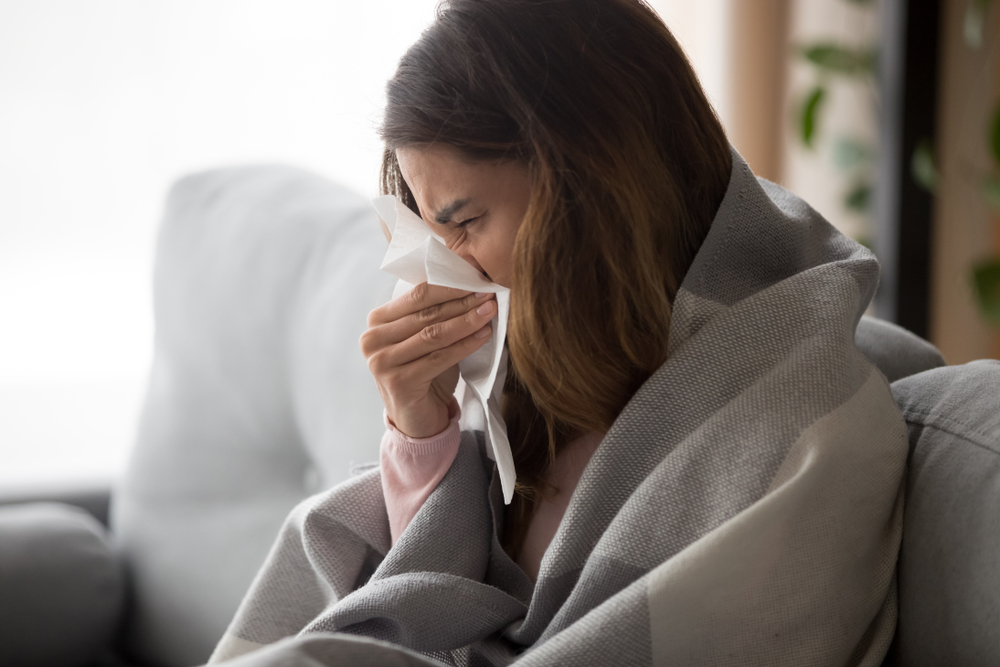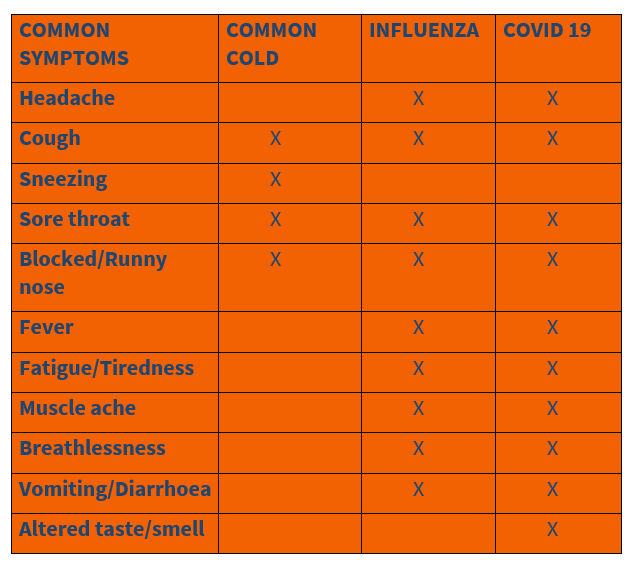 With the end of Summer and the sudden chill in the morning air, it is inevitable that our thoughts turn to Winter health needs, more specifically the flu!
With the end of Summer and the sudden chill in the morning air, it is inevitable that our thoughts turn to Winter health needs, more specifically the flu!
So, let’s talk more about the flu or influenza, to give it its proper name.
What is the flu?
Influenza or the flu, (as we will call it) is an infectious respiratory disease caused by influenza viruses that contaminate the nose, throat, and occasionally the lungs. Symptoms of flu can be mild to more serious and at times may be fatal.
How do I know I have the flu?
With the advent of Covid-19 and the general increase in cold cases during the chillier months, it can be confusing to know if you have the flu or something else.
Covid-19, the common cold and the flu are all caused by viruses that attack the respiratory system (the nose, mouth, throat, and lungs) and they all have similar symptoms. With the common cold, symptoms tend to be less severe than with the flu, however, Covid-19 and the flu do have comparable symptoms, Covid-19 spreads more easily and it is more common for sufferers to have changes to their sense of taste and smell. The symptom table below gives you a simple breakdown of common symptoms associated with all three viral conditions (1):

How does the flu spread?
With the increase in public health notifications and campaigns, more people are aware that the flu is an infection and that it is spread from person to person. Typically, the flu is spread via airborne droplets, meaning that when someone is infected, they can pass on the flu to others when they cough, sneeze, or talk, even from as far away as six feet. An infected person can spread the flu up to a day before they feel unwell, and up to a week after they feel ill. Naturally, the young, the old and people who have lowered immunity (resistance) to disease will be more susceptible to contracting the flu and may be contagious longer.
What to do if you have the flu
We’ve all heard the old adage “Feed a cold, starve a fever” but this advice likely came about when people thought that only two types of illness existed, those which caused low temperature and those which cause high temperatures. Eating more food was encouraged to raise the body temperature and dispel the cold symptoms, while by starving, the temperature of the body would drop and the fever break. Now we have a better understanding of viruses and nutritional needs when we are unwell. Feeding a fever is now thought to be more important than feeding a cold, as symptoms of sweating, diarrhea and vomiting increase the loss of body fluids leading to dehydration. If tolerated hot soup and herbal drinks are good to keep mucous thin and help remove unwanted substances from the nose and throat.
The most important thing is to stay hydrated, rest, keep comfortable and remain at home until recovered.
How do we protect ourselves?
We know that the flu is a contagious disease, spread through the population by contact with infected people. Protecting ourselves is key to stopping infection and the best way to do this is by getting vaccinated.
Getting vaccinated is the safest and most efficient form of protection against contracting the flu. Unfortunately, even when vaccinated, some people can still develop the flu, albeit that symptoms are likely to be milder and the duration of infection shorter. Vaccination can help reduce the spread of flu to vulnerable people; those likely to become seriously ill and who may have more complications if they contract the flu.
It is important to get immunised every year, this is due to the flu virus continually changing and a drop in immunity which happens naturally over time.
The vaccination will not give you the flu, but you may develop mild flu symptoms.
Vaccination for the workforce
Every year in the UK the winter season brings with it absence from work due to cold and flu-related illness. In comparison to overall sickness absence rates, the flu accounts for a small percentage of workdays lost; however, this absence can be reduced by organising a vaccination programme for the workforce.
ROC Healthcare Services and your flu vaccination needs
At ROC Healthcare Services we aim to provide best practice and client healthcare whilst considering the requirements of your business. We pride ourselves on delivering exceptional, patient-centred care and will help plan and deliver a flu vaccination service to meet your business needs. To discuss this or any other Occupational Health business requirements please contact: –
Address: Aberdeen
Westhill Business Park
Peregrine Road
Aberdeen
AB32 6JL
Telephone: +44 0207 935 0606
FAX: +44 01224 418 254
Email: aberdeen@rochealthservices.com
Address: London
45 Queen Anne Street
Marylebone
London
W1G 9JF
Telephone: +44 0207 935 0606
FAX: +44 0207 935 06 07
E-mail: london@rochealthservices.com
References
https://www.nia.nih.gov/health/flu-and-older-adults
https://www.nhsinform.scot/winter-vaccines/the-flu-vaccine/flu-vaccine
https://www.cdc.gov/flu/prevent/vaccine-selection.htm
https://www.health.com/condition/cold/feed-a-cold-starve-a-fever

